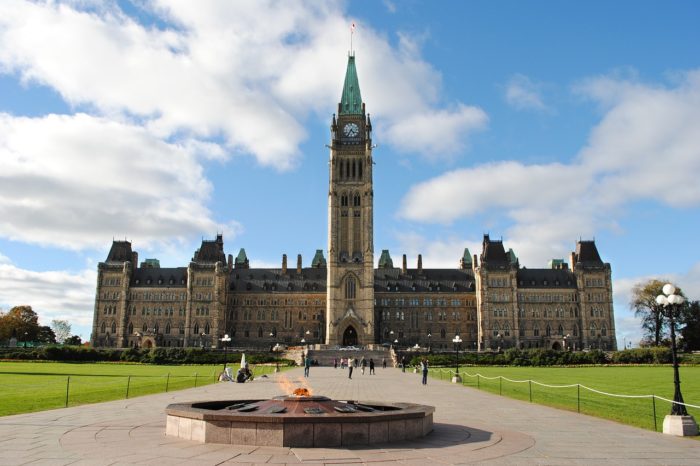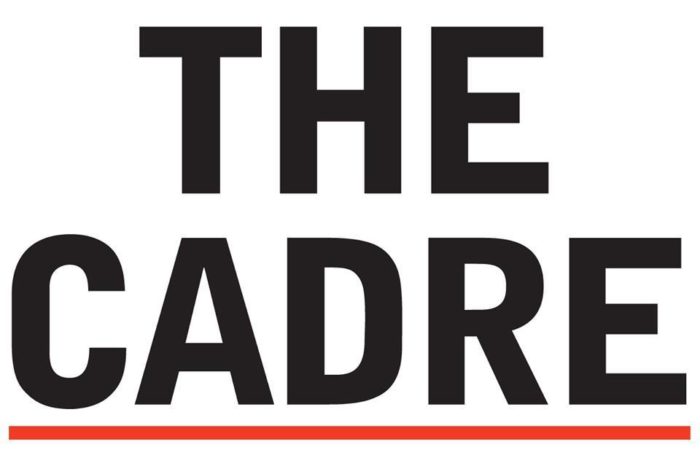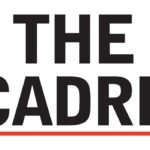By: Sarah Crosby
“I don’t know how I feel about that†a co-worker remarked to me,  giggling uneasily while reading the Toronto Sun’s recent article on our new Prime Minister’s status as an international heartthrob.
Dubbed “#APEChottie†at the recent Asia Pacific Economic Co-operation summit, the article’s photo showed a beaming Trudeau waving to the Filipino press. A stark contrast from Mr. Harper’s stiff demeanor.
Despite being thrown off the proverbial deep-end, Mr. Trudeau has managed to hold his own during four international summits in the past month. Staging press conferences in planes, and greeting crowds of selfie-seeking international fans, Trudeau’s experience as a politician’s kid shows. Justin is an international hit.
While the PM jetted off, Liberals began reversing the effects of the Harper regime immediately post-election; reinstating the long-form census and de-muzzling the public service. Government communications have returned to “The Government of Canadaâ€, rejecting its once leader-based branding (“Harper Government†anyone?)
Trudeau promised us “Real Change†and if his media popularity is any indication, Canadians are welcoming it.
However I can’t help but agree with my co-worker. I’m uneasy. Trudeau’s shiny new policies (and great hair) might be a breath of fresh air, but undoing the Harper regime is going to take a lot more than a gender balanced cabinet and a couple of hope-ridden press releases.
Let’s start with the Mandate letters. Under the ruse of transparency the letters are publicly accessible, allowing Canadians to see exactly what cabinet ministers have on their agendas. A quick read of the letters reveals several things: first, that this might not in fact be a pure exercise in accessibility- the first several paragraphs of each letter are carbon copies of campaign jargon. Secondly, every portfolio contains at least one instruction to undo Conservative legislation, whether it be reversing cuts to the CBC, or ending shutdown of Veteran’s Affairs offices.
What the mandate letters don’t answer however, is which Conservative measures can’t or won’t be changed.
Even the most rampant anti-tory will admit that Harper was a talented politician. His 9 year PMO-central legacy will be difficult to undo. A change in governmental tone is one thing, but how effective can the Liberals be in the wake of the Harper legacy?
Before beginning their own to-do list, Liberals have significant Conservative handiwork to dismantle. For one, terrible morale among public servants. To implement new policies at the speed they’ve promised, civil servants need to jump when government says how high; difficult in the wake of Harper’s 9 years of hostility. No matter how positive a tone the Liberals adopt, an overnight rehabilitation is unlikely.
Cranky public servants aren’t the only hurdle. Finance Minister Bill Morneau has predicted a 3.3 billion dollar deficit, versus the 1.4 billion surplus Conservatives quoted. Liberals promise to run deficits will be complicated with empty cupboards in Ottawa. A kinder tone and a more transparent government might be great, but a broke government? Not so much.
Conservative’s 49 future appointments to crown corporations and agencies have also come to light. Future appointments aren’t exactly revolutionary (just ask John Turner), but Harper’s are particularly sly. Most don’t come into effect for another year, meaning corps like the National Energy Board and Canada Post have been stacked against the Liberals until as late as 2020. Some appointments are reversible but it would be a costly and highly criticized undertaking. One key election promise was to “Modernize the National Energy Board†and continue door-to-door mail delivery, but these promises appear doomed. That’s not even touching the 600 of the 840 judges appointed by Mr. Harper across varying levels of courts, another example of the Liberals being hogtied by their predecessors.
Don’t get me wrong though-I’m as pleased any non-Conservative to welcome a new face to the Prime Minister’s chair. The Liberal’s modern, optimistic voice could be just the facelift Parliament needs. However good intentions can only break so much ground, and with more high and expectations higher, disappointment is inevitable. The honeymoon will end. Before it does Canadians should maintain the engagement it took to send Harper away; the end of the election shouldn’t mean the end of political literacy. We’ll just end up disillusioned.
On the positive side, Harper didn’t destroy Canadian democracy, as so many accused him of doing. Our system is too robust to allow for true overthrow. It’s too good at correcting its self to sustain any irreversible damage. Nonetheless, Mr. Harper did a damn good job of trying, and a real remedy calls for a lot more than Trudeau-Mania.









